Table of Contents
ToggleNavigating the world of personal finance can feel like trying to assemble IKEA furniture without the instructions—confusing and a little terrifying. But it doesn’t have to be that way. For beginners, mastering money management is less about crunching numbers and more about making smart, simple choices that lead to financial freedom.
Imagine a life where budgeting isn’t a dreaded chore but a path to your dreams, whether that’s a vacation in Bali or a cozy home with a white picket fence. With the right tips up your sleeve, anyone can transform their financial future. Let’s dive into some essential personal finance tips that’ll not only empower beginners but also put a smile on their faces as they take control of their wallets.
Understanding Personal Finance
Personal finance involves managing one’s finances to achieve individual goals. Beginners benefit from grasping essential concepts early on.
Importance of Financial Literacy
Financial literacy enables individuals to make informed decisions about money management. Knowledge of budgeting, saving, and investing fosters better financial habits. Understanding how to analyze financial information enriches one’s ability to plan for the future. It provides confidence in navigating complex financial landscapes. Studies show that financially literate individuals achieve their goals more effectively than those without this knowledge.
Common Misconceptions
Many people believe personal finance is solely about complex mathematics. In reality, it revolves around making smart, simple choices. Another misconception is that budgeting limits spending, but it actually empowers individuals to prioritize their expenses. Some think financial success requires a high income, when in fact, effective management of any income leads to stability. Lastly, many assume investing is only for the wealthy, yet anyone can start with small amounts and grow their wealth over time.
Budgeting Basics
Budgeting serves as a crucial foundation for personal finance, guiding individuals toward financial stability and achievement of goals.
Creating a Personal Budget
Establishing a personal budget starts with tracking income and expenses. Individuals should detail all sources of income, including salaries and side hustles. Next, categorize expenses into fixed costs like rent and variable expenses such as entertainment. Evaluating these categories helps identify areas for potential savings. After analyzing spending, allocating specific amounts for each category assists in maintaining control over finances. Regularly reviewing the budget allows for adjustments based on changing circumstances. Individuals find success when they prioritize essentials and limit discretionary spending.
Tools for Budgeting
Leveraging budgeting tools increases effectiveness in managing finances. Numerous apps cater to various needs, such as Mint and YNAB, offering intuitive interfaces and tracking functionalities. Spreadsheets also provide customizable tracking solutions for those who prefer a hands-on approach. Online calculators can aid in setting financial goals and monitoring progress over time. Additionally, financial institutions often offer free budgeting resources or software. With the right tools, individuals simplify the budgeting process and enhance accountability. It’s essential to choose a method that aligns with personal preferences for optimal results.
Saving Strategies
Effective saving strategies lay the groundwork for financial stability. Focusing on practical steps can help beginners achieve their savings goals.
Emergency Fund Essentials
An emergency fund serves as a financial safety net. This fund typically covers three to six months of living expenses. It can shield against unexpected costs like medical bills or car repairs. Start by saving small amounts consistently until reaching the target amount. Automating transfers to a savings account can simplify this process, making it easier to build the fund. Regular contributions instill a habit of saving, ensuring funds are readily available when emergencies arise.
Setting Savings Goals
Establishing clear savings goals provides direction and motivation. Specific goals, such as saving for a vacation or a down payment on a house, allow for better planning. Break down larger goals into manageable monthly or weekly targets. Tracking progress helps maintain focus, while visual aids can increase motivation. Consider using apps or spreadsheets to monitor savings effectively. Prioritizing goals based on urgency or importance enables more strategic saving efforts. Regularly review and adjust these goals to reflect changing circumstances or financial situations.
Debt Management
Managing debt effectively plays a crucial role in personal finance. Understanding different types of debt helps individuals make informed decisions about their financial futures.
Understanding Different Types of Debt
Debt can be categorized into two main types: secured and unsecured. Secured debt involves collateral, like a mortgage or an auto loan, where lenders can reclaim the asset if payments aren’t made. Unsecured debt, such as credit cards and medical bills, doesn’t involve collateral, making it riskier for lenders. Additionally, revolving debt allows for flexible borrowing and repayment, while installment debt requires fixed payments over a specified period. Identifying the types ensures a tailored approach to repayment, which ultimately improves financial health.
Strategies for Paying Off Debt
Establishing a strategy to pay off debt can lead to significant financial relief. The snowball method focuses on paying off the smallest debts first, creating quick wins that motivate progress. In contrast, the avalanche method targets high-interest debts, potentially saving more money on interest over time. Prioritizing owed amounts by interest rates ensures borrowers allocate funds efficiently. Setting up automatic payments prevents missed dues and minimizes late fees. Regularly reviewing the debt situation allows for adjustments based on personal circumstances, fostering a proactive approach to debt management.
Investing Fundamentals
Investing plays a vital role in building wealth and achieving long-term financial goals. Starting early allows individuals to take full advantage of compound growth.
Importance of Investing Early
Investing early empowers individuals to accelerate their wealth accumulation. With time on their side, they can benefit from compound interest, making even small contributions grow significantly. Financial markets generally provide positive returns over the long term, so starting sooner often translates to higher overall investments. Additionally, early investors develop financial habits that can lead to smarter decisions down the road. Those who begin their investment journey while young can minimize risk through diversification, balancing their portfolios over time.
Types of Investment Options
Various investment options cater to different risk tolerances and goals. Stocks represent a share in a company and typically offer high growth potential but come with higher volatility. Bonds provide fixed income through loans to governments or corporations, generally involving lower risk and lower returns. Mutual funds pool money from multiple investors, allowing for diversification and professional management. Exchange-traded funds (ETFs) operate similarly to mutual funds but trade on stock exchanges, offering flexibility and lower fees. Real estate can also be a lucrative option, whether through direct property ownership or real estate investment trusts (REITs). Each type presents unique benefits and risks, allowing investors to choose based on their financial situation.
Building Financial Habits
Building strong financial habits is crucial for long-term success in personal finance. Developing these habits leads to better money management and goal achievement.
Tracking Your Income and Expenses
Tracking income and expenses forms the foundation of financial awareness. Individuals can use apps, spreadsheets, or paper ledgers to record every dollar they earn and spend. Regular updates ensure accuracy and clarity regarding their financial situation. By categorizing expenses, they can identify spending patterns and prioritize reduction in non-essential areas. Creating a consistent system encourages accountability and informs better future decisions.
Tips for Staying Consistent
Staying consistent requires establishing a routine that fits individual lifestyles. Setting aside a specific time each week for financial reviews helps in maintaining the habit. Writing down goals and celebrating small achievements boosts motivation and encourages ongoing commitment. Using reminders or alerts ensures individuals don’t overlook their financial tasks. Additionally, sharing progress with friends or family provides support and holds individuals accountable for staying on track.
Embarking on a personal finance journey can seem daunting but it’s filled with opportunities for growth and empowerment. By adopting smart budgeting practices and establishing clear savings goals beginners can pave the way to financial stability. Understanding debt management and exploring investment options further enhances their ability to build wealth over time.
Developing strong financial habits and utilizing available tools can make the process more manageable and enjoyable. With a proactive approach and consistent effort anyone can take control of their financial future. The journey may have its challenges but the rewards of financial literacy and independence are well worth the effort.








